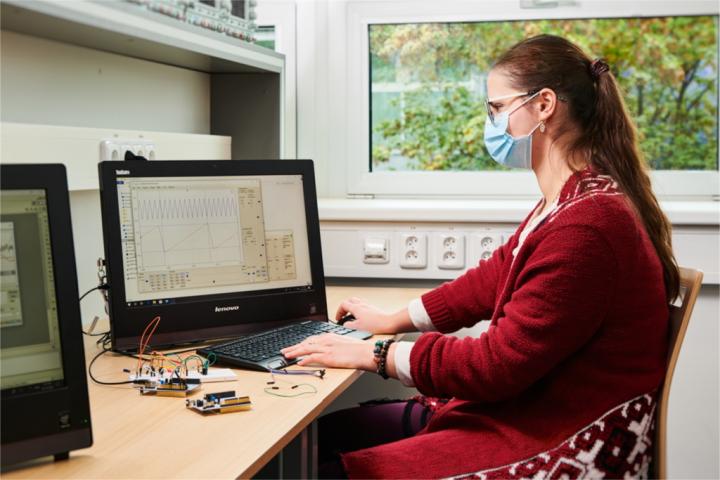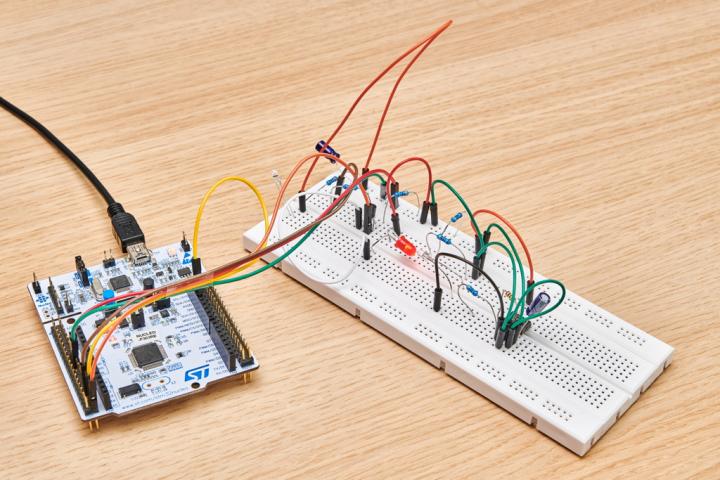
A total of 73 students and teachers at the Faculty of Electrical Engineering of the Czech Technical University in Prague decided to help primary and secondary schools during epidemiological restrictions and related distance learning and offered their help in the form of tutoring, providing educational content or donating computer equipment. Through projects APIV B (https://www.inkluzevpraxi.cz/) and SYPO (https://www.projektsypo.cz/), established by the National Pedagogical Institute of the Czech Republic, and in close contact with the organization People in Need and the Association of Directors primary schools the faculty tackles how to insure the help reaches a specific pupil. The Faculty is the first non-pedagogical faculty to participate in these projects.
"We are aware that the first wave of the coronavirus epidemic has made it significantly more difficult for a fifth of pupils to access education. Regarding online tutoring, 42 of our volunteers cater to schools and families in need during distance learning. At the moment, 16 of them have already joined the online tutoring of pupils at the second stage of primary schools, mainly in mathematics, and we are currently looking for a suitable pupil for another 26, "said prof. Petr Páta, Dean of the Faculty of Electrical Engineering. "It is not a one-time affair, volunteers will accompany their students at least until the end of the year so that the effect is long-lasting and can be reflected in the students' knowledge. I am pleased that so many of our students and teachers have found time in difficult times for volunteering in this range, "adds prof. Petr Páta.
Student Anna Glöcknerová teaches mathematics to Sophia, a 7th grader of primary school in Brno. "Sophie's main problem is the gaps in the curriculum after moving to a new school. She tries very hard during tutoring and her parents support her in that, "says the volunteer, who highly praises communication with the student's mother. Tutoring takes place twice a week via Skype and Anna Glöcknerová prepares for it mainly in terms of content.
According to Tereza Škachová, there is a great demand for schools to tutor precisely these exact subjects, and volunteers from the Faculty of Electrical Engineering of the Czech Technical University in Prague can contribute to dozens of pupils to the fact that distance learning does not impact negatively on their knowledge. However, the benefits of mutual contact of university students or academic teachers with pupils from the second stage of primary schools can be broader: they are often children from a less stimulating environment, who lack positive examples in their surroundings. A few months of contact between a successful tutor and a less motivated pupil, which would not otherwise have taken place, can trigger a deeper transformation and development of children at a time when their future focus is being decided.
Apart from tutoring, volunteers can also influence the future direction of students
FEE volunteers can also be approached through schools by families whose distance learning technologies do not work as they should. "According to field information, there are still a number of children who have technical problems joining online lessons from home. Whatever the problem, families can discuss it with our volunteers. We have not yet been able to get this offer of software support and remote consultations, to families who would make use of it the most, "says Dean Petr Páta, who recommends families who would be interested in this service to register directly via the form here.
According to Tereza Škachová, there is a great demand for schools to tutor precisely these exact subjects, and volunteers from the Faculty of Electrical Engineering of the Czech Technical University in Prague can contribute to dozens of pupils to the fact that distance learning does not impact negatively on their knowledge. However, the benefits of mutual contact of university students or academic teachers with pupils from the second stage of primary schools can be broader: they are often children from a less stimulating environment, who lack positive examples in their surroundings. A few months of contact between a successful tutor and a less motivated pupil, which would not otherwise have taken place, can trigger a deeper transformation and development of children at a time when their future focus is being decided.
Other forms of assistance to schools - consultations, provision of workshops and computer equipment
FEE volunteers can also be approached through schools by families whose distance learning technologies do not work as they should. "According to field information, there are still a number of children who have technical problems joining online lessons from home. Whatever the problem, families can discuss it with our volunteers. We have not yet been able to get this offer of software support and remote consultations, to families who would make use of it the most, "says Dean Petr Páta, who recommends families who would be interested in this service to register directly via the form here.
Primary and secondary schools, whose computer infrastructure administrators face problems with the provision of online teaching or limited human resources, can also count on help from the Faculty of Electrical Engineering. Once again, 7 experts from the Faculty of Electrical Engineering are available for consultations on a voluntary basis.
Teachers who want to diversify their teaching can reach for an online workshop or lecture offered by 9 volunteers. The topics are diverse - from MS Office and its effective use in online teaching through programming in Python to instructions for creating a simple website.
Fifteen volunteers decided to donate their computer equipment, along with PCs also monitors and webcams etc., which will be appreciated especially in families. Laptops are already helping or will soon help students in Lázně Bělohrad, Medlov or Zlín. Already in September, the Faculty of Electrical Engineering donated almost 60 monitors and other computer accessories to the organizers of the charity project for families in need, Computers for Children, which takes place under the auspices of the IT People Endowment Fund. The devices are currently helping children from home to study, and technology thus contributes to increasing computer literacy and creative activities.
The LEO laboratory enables practical teaching of high school students from home
During the coronavirus limitations, it is not possible to conduct practical training in distance electronics in the traditional way due to the unavailability of laboratories equipped with specialized instruments.
"Due to the fact that the practical part of the course has an irreplaceable role, the team of the videometry laboratory of the Department of Measurement at the Faculty of Electrical Engineering CTU in Prague has developed an innovative device “LEO” (Little Embedded Oscilloscope). The device can be used as an oscilloscope, voltmeter, function generator, DC source, pulse generator, counter or logic analyzer, "said prof. Jan Holub, Head of the Measurement Department, Faculty of Electrical Engineering, Czech Technical University in Prague.
In addition to high school students, to whom the LEO device allows not only to gain practical experience, but also to test the theoretical knowledge experimentally in the safety of home, it will also be appreciated by enthusiasts - the makers. Thanks to him, they will be able to play and create fascinating technical devices and applications. In addition to experiments in electronics, sensor technology and electrical engineering, LEO can also be used in physics, biomedical engineering and similar fields. Its operation is very simple and intuitive. The software for the LEO device can be downloaded and installed free of charge at https://embedded.fel.cvut.cz/platformy/leo.
